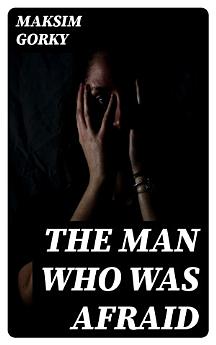關於這本電子書
In "The Man Who Was Afraid," Maksim Gorky delves into the profound psychological struggles of the individual within the context of social alienation and existential dread. The novella's narrative style is marked by its lyrical prose and vivid characterizations, reflecting Gorky's rootedness in the Russian literary tradition while simultaneously pushing against the boundaries of naturalism. This poignant exploration of fear, identity, and the human condition invites readers to reflect on the societal structures that contribute to personal angst, contextualized against the backdrop of a rapidly changing early 20th-century Russia marked by social upheaval and political uncertainty. Maksim Gorky, a key figure in Russian literature and a fervent advocate for the working class, drew heavily from his own tumultuous life experiences. Born into poverty, Gorky faced numerous hardships that shaped his worldview and ignited his passion for social justice. His innate understanding of anxiety and despair is masterfully articulated in this novella, shedding light on the broader existential fears that plagued individuals during an era of profound societal transformation. I highly recommend "The Man Who Was Afraid" to readers seeking a deep and thought-provoking work that encapsulates the essence of human vulnerability. Gorky's exploration of fear resonates across time and borders, making this novella not only a compelling literary experience but also an essential reflection on the human experience in the face of adversity.
關於作者
Maksim Gorky, born Aleksey Maksimovich Peshkov on March 28, 1868, in Nizhny Novgorod, Russia, is one of the towering figures in Russian literature. Gorky became an orphan at a young age and faced a harsh and impoverished upbringing. This crucible of early suffering informed much of his later work, giving rise to a literary style characterized by its deep empathy for the downtrodden and a propensity for social critique. His pen name, Gorky, aptly means 'bitter' in Russian, reflecting the tone of his writings. His novel 'The Man Who Was Afraid' (also known as 'Foma Gordyeeff') exemplifies Gorky's talent for exploring the human condition, portraying the life of its protagonist with both stark realism and a revolutionary spirit. The narrative lays bare the struggles of the lower classes, a theme Gorky revisits frequently, advocating for social change through literature. As a proponent of the Socialist movement and an associate of Lenin, Gorky's works often interweave political ideology with humanist concerns. His literary style contributed significantly to the development of Socialist Realism. Although he spent significant periods in exile, Gorky's legacy endures, not only through his literary contributions but also in the recognition of his influence on Russian and world literature.
為這本電子書評分
請分享你的寶貴意見。
閱讀資訊
智能手機和平板電腦
手提電腦和電腦
你可以使用電腦的網絡瀏覽器聆聽在 Google Play 上購買的有聲書。
電子書閱讀器及其他裝置
如要在 Kobo 等電子墨水裝置上閱覽書籍,你需要下載檔案並傳輸到你的裝置。請按照說明中心的詳細指示,將檔案傳輸到支援的電子書閱讀器。








